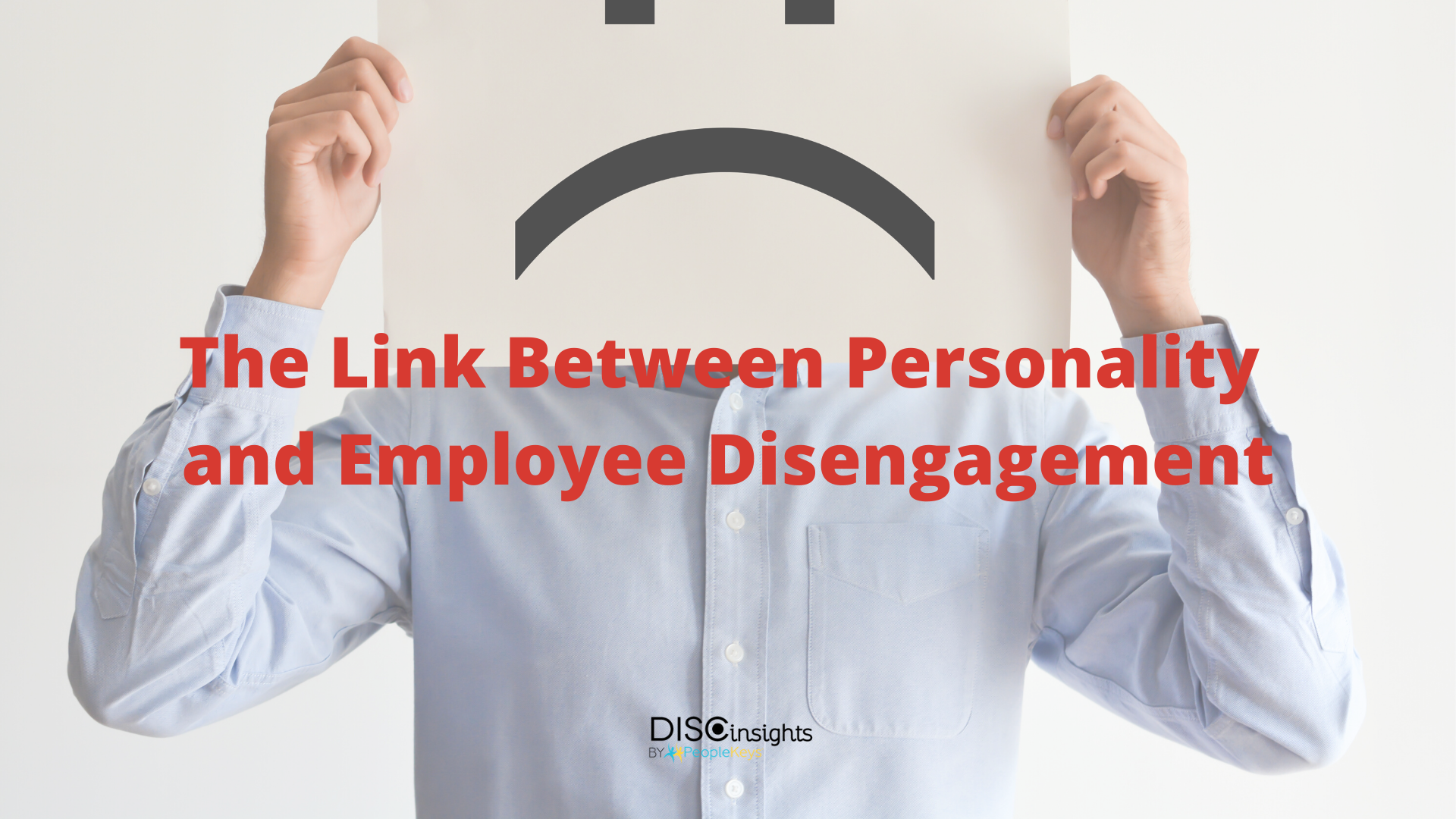- SHOP BY PRODUCT
- DISC TRAINING & CERTIFICATION TOOLS
- DISC RESOURCES
- BLOG
- SHOP BY PRODUCT
- DISC TRAINING & CERTIFICATION TOOLS
- DISC RESOURCES
- BLOG
- ALL ITEMS



There is a hidden piece of hiring new employees that influences their choice to join your company: your reputation of how much people like working there. It is negatively impacted by employee disengagement, especially as those workers begin to undermine team members who are still engaged. Disengaged employees become cynical, passive, and toxic. How do we prevent, avoid, and recover from this?
When we look at what motivates each DISC personality style, we see one of the largest pieces of employee disengagement. Once motivation is snuffed out, employee behavior degrades and sucks others down with it. So, how can we prevent it?
Learn how to keep your employees engaged & motivated with DISC Certification
These employees seek freedom from rules made by others. Obviously, within an organization, they have to accept a certain level of rules they have to follow. But when they begin to view them as overly burdensome, they begin to tune out. When you see a “D” begin to withdraw and not argue for their opinions is when you should recognize a huge red flag for their disengagement.
This style needs to feel that they are in charge, so explore what is between that goal and the current state. You can be direct by asking them for their feedback, but be prepared for direct answers that are not sugar coated. The act of asking them begins to restore their power, but make sure to take action on their words. Otherwise, you’ll add to their cynicism and disengagement.
“I” style employees respond to acceptance and approval. If you are not actively creating opportunities for positive feedback for all employees, the “I” style will disengage the quickest. Once they lose their positive energy, they will get their approval from others who show interest and approval of their negative opinion of current management.
Employees of this style are your natural “cheerleaders,” so going to them first to get their ideas on how to turn the mood around should be your first step. Their energy will snap back to life as they create social and professional activities that could potentially bring back the positive engagement. Please be sure to recognize them publicly so they have their need for approval met.
This style loves routine and being recognized for their steady, hard work. As the genuine gratitude for their efforts fades away, so too will their performance. They also appreciate having time to adjust to changes, so if you quickly push changes down their throat, their disengagement will grow.
This will take a bit of time and focused effort. You will need to win back their trust by slowly building rapport and spending time with them to get to know them better. Once this happens, they are more likely to open up to you about what’s not working for them. Once you’ve identified a plan to turn it around, be patient with their need to take time to adjust.
Having plenty of data and being well-informed goes a long way to preventing employee disengagement for the “C” style. They appreciate accuracy and knowing they are delivering what is expected. If there is very little information given to them about what’s expected, they will disengage because they don’t feel they are doing their job well.
Realize if you have criticized the work they have done, but didn’t lay out clear expectations, you need to admit that and ask them what would have been helpful to know more about. Then, put a plan in place for being specific with what’s needed while giving them latitude on how it’s done. Once they see their logic is valued, then they will begin to re-engage with the team to provide a data-driven look at ideas.
As a leader in your company, your focus on the factors that prevent and reverse employee disengagement, especially as they relate to personality styles, will be the difference between a desirable place to work and one to be avoided at all costs. Take the time to learn more about how to use personality to predict employee disengagement with certification in behavioral analysis.

©2025 PeopleKeys. All Rights Reserved
WORKING DAYS/HOURS
Mon - Fri / 8:30AM - 5:00PM EST
